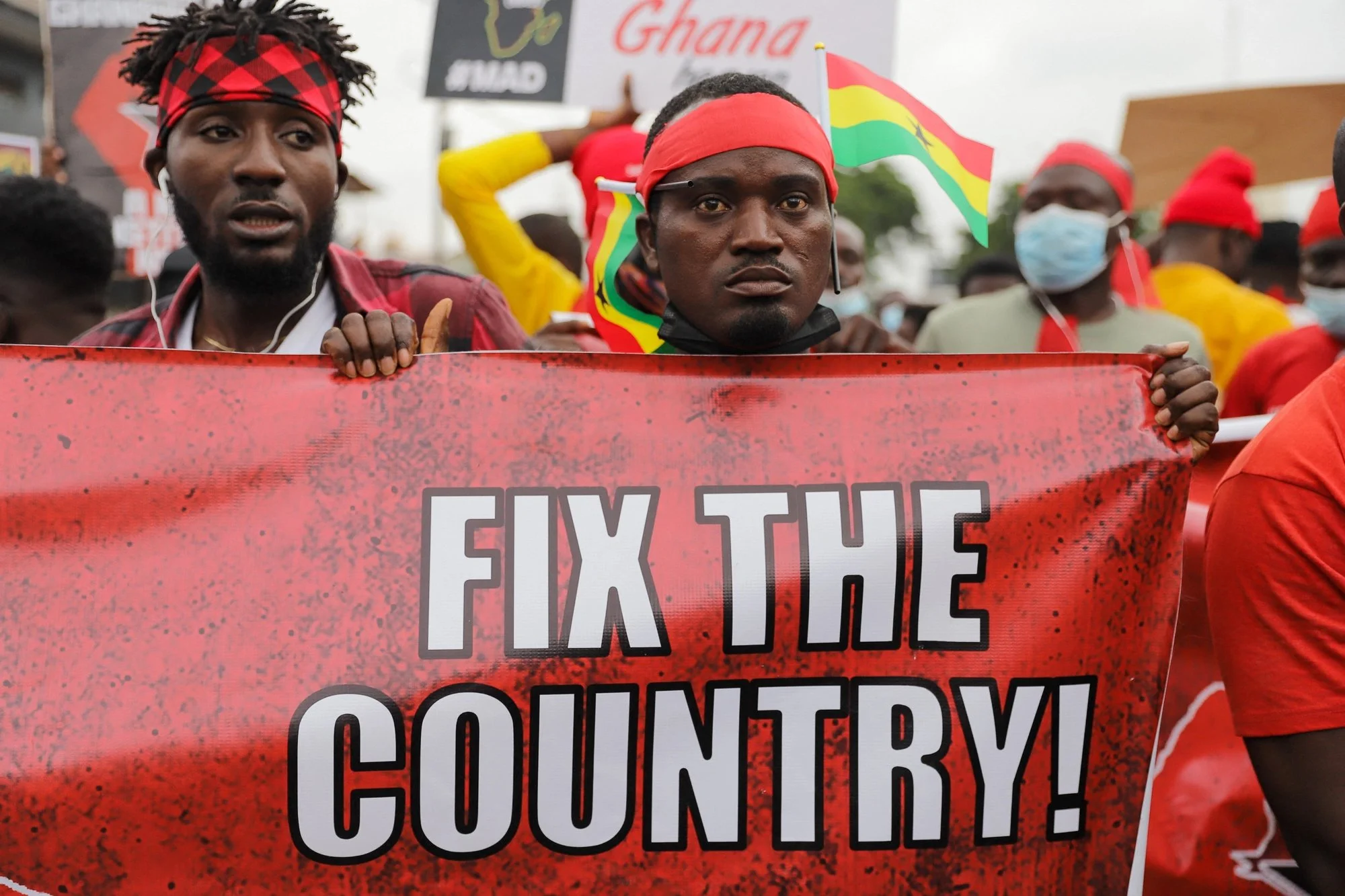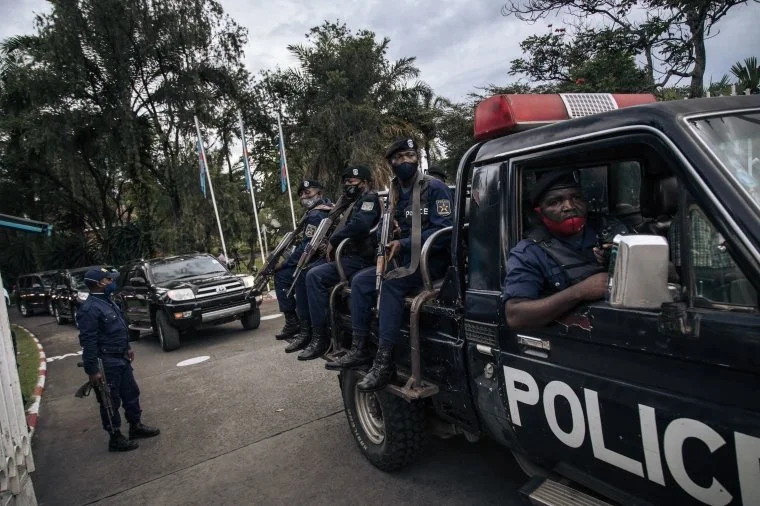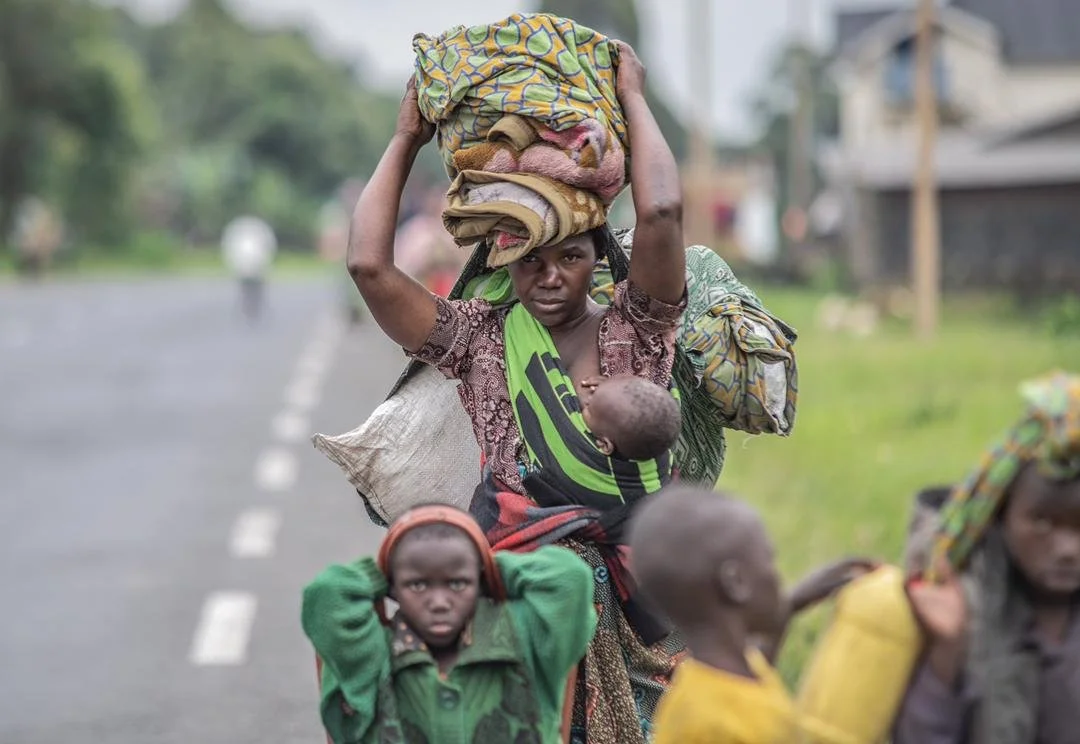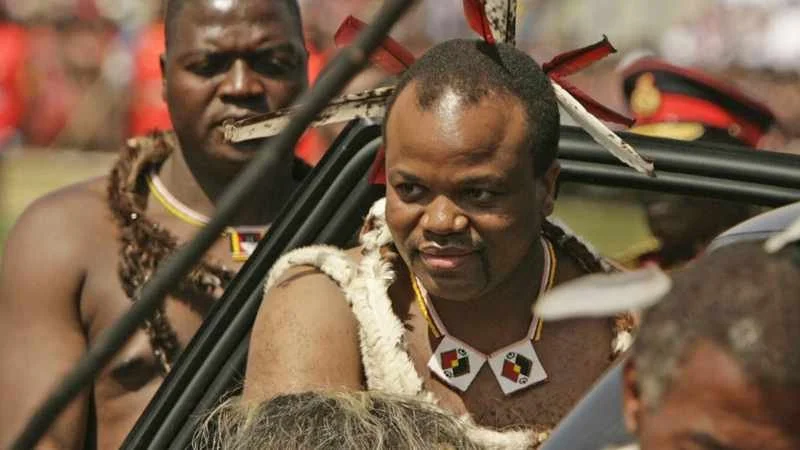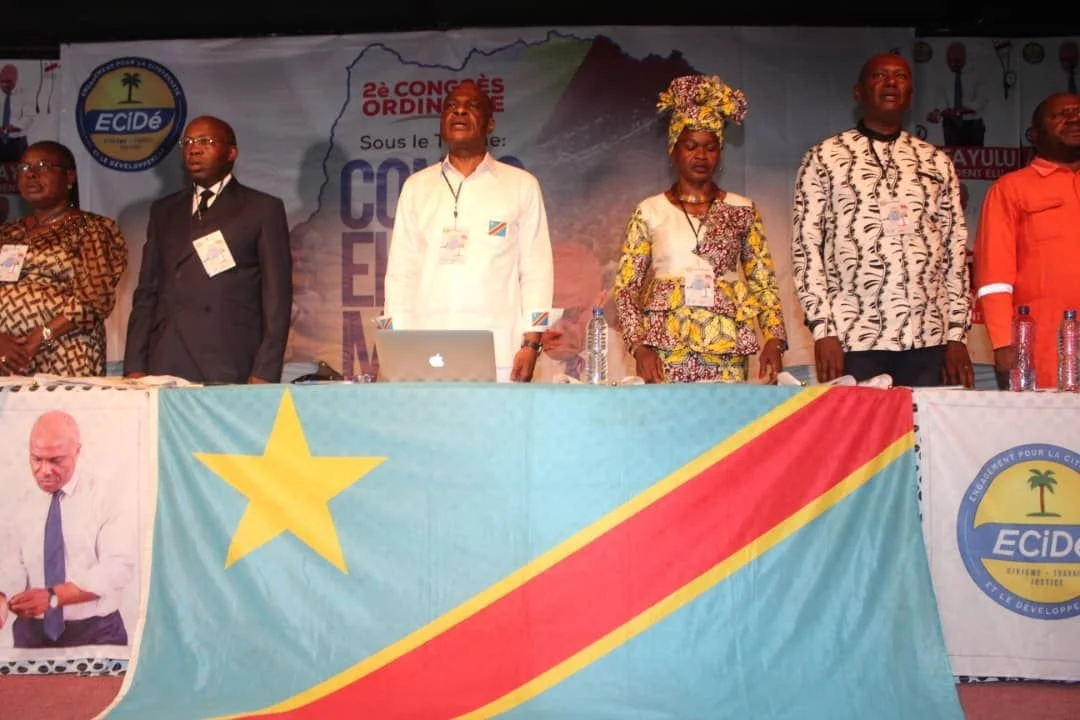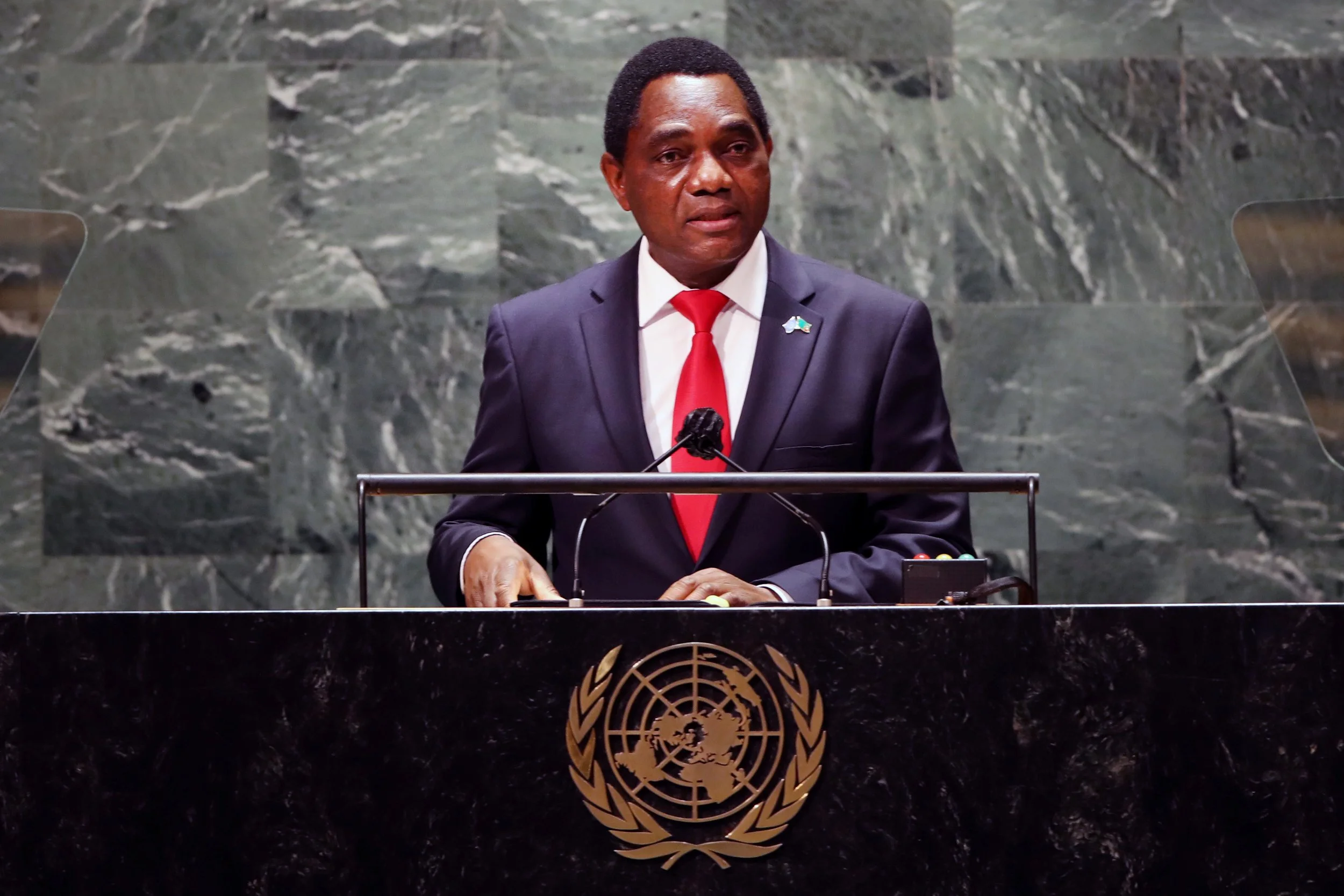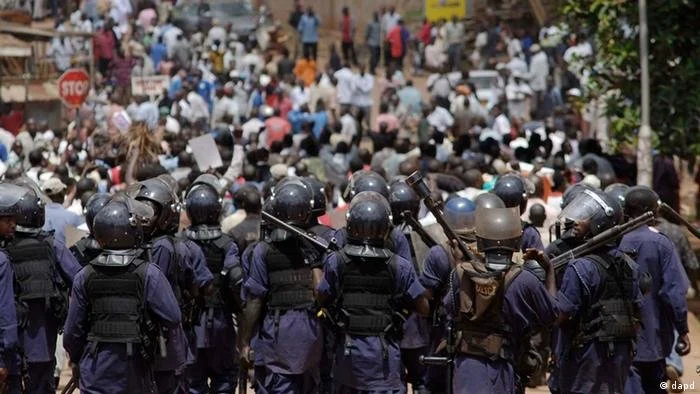The democratic backsliding underway in Mozambique — which has so far evaded the headlines — is characterized by a power grab by President Filipe Nyusi, who has been laying the groundwork to run for a third presidential term next year. At the same time, the country’s democratic quality, including respect for political rights and civil liberties, have consistently declined since he assumed the presidency in 2015. Researcher Steven Holmes and our director Jeffrey Smith write on the importance of this year for Mozambique and its people.
Tunisia’s Nascent Democracy is Fast Eroding
Acclaimed across the globe as the success story of the Arab spring protests a decade ago, Tunisia’s democratic transition is now on a precipice. In this guest post, David Kode argues that if nothing is done by the international community — and especially Tunisia’s main allies — then the country will further descend into full-on authoritarianism.
Vanguard Africa joins human rights groups to demand independent inquiry into the murder of Thulani Maseko
It has been 30 days since the brazen murder of Thulani Maseko in Eswatini. To date, the government has done nothing to show that they are prioritizing investigations into his murder — instead, it has entangled itself in contradictions about halting its tactics of intimidation and threats meted out to any pro-democracy advocates, human rights defenders, entities and individuals that espouse such values.
It is Time for Tough Action on King Mswati III
In this guest post, human rights activist Velaphi Mamba writes on the brazen murder of Swaziland’s most well-known activist and lawyer, Thulani Maseko. In remembering Thulani’s many contributions, he argues that it is time for the world’s democrats to unite — finally — in support of long-overdue reforms in Africa’s last absolute monarchy, which continues to rule with brazen violence and impunity.
Ghana: ‘The Public Relations Democracy’
In this guest post, social justice activist Hardi Yakubu, from Africans Rising, writes that the perception of Ghana as one of Africa’s most robust democracies is profoundly flawed. This assessment is the result of years of increasing state violence against peaceful protesters and judicial repression that has been employed to silence critical journalism and dissent. He argues that it is long past time to dig deeper, and to go well beyond the inaccurate global headlines.
Zambia Bets on a Young Creative: A win for the country and region
This week’s guest post is from Zimbabwean activist Mantate Mlotshwa — here, she reflects on the recent appointment of Fumba Chama (AKA Pilato) to Permanent Secretary for Youth, Arts and Sports in Zambia and, particularly, what it means for young creatives such as herself and the inspiration it generates for young people across the region.
From Exile: My Perilous Journey Back to Djibouti
In this special guest post, Djibouti’s heralded pro-democracy leader, Daher Ahmed Farah, announces his return from exile. The time has come once again, he writes, to join his comrades and party colleagues in the struggle for human freedom despite the inevitable threats he will confront. He calls upon fellow democrats worldwide to stand up with him at this crucial and personally harrowing time.
Broken Promises and Failures: Tshisekedi's First Term in DR Congo
In this guest post, activist and researcher Jean-Michel Nlandu writes on the tumultuous tenure of Felix Tshisekedi in the Democratic Republic of Congo, which has been marked by a crackdown on the independent press and an increase in political prisoners, which have combined to spark fears of a “revival of a police state.”
Ugandans Seeking Democracy Feel Betrayed by U.S. Policy
It is undeniable that the United States government is aware that Uganda is under a dictatorship, and has evidence of atrocities committed by the Museveni regime, writes Ugandan diaspora leader Daniel Kawuma. That Museveni and other autocrats across Africa are invited to Washington this week is not only bad optics, but bad policy as well.
In DR Congo, Inept Leadership Compromises Safety and Security
Congolese human rights activist Stewart Muhindo writes on the deteriorating security situation that prevails in the eastern DR Congo, a reality exacerbated by an inept government at home, one the one hand, and by violent rebels backed by Congo’s neighbors, on the other. There is a way out of the morass, however, and it begins with long overdue governance and security reforms at home.
Uganda: Ending Torture and Impunity Requires More Than Promises
In this guest post, human rights lawyer Bwambale Asiimwe Micheal writes on Uganda’s epidemic of torture and the impunity for perpetrators that prevails in the country — this, despite the repeated pledges and empty promises made by government officials at global meetings, including the recent U.N. Committee against Torture in Geneva.
Insecurity Threatens to Derail Nigeria’s Feb. 2023 Elections
Nigeria is experiencing the highest levels of insecurity since the country’s transition to democracy in 1999 — and available evidence shows that states with high levels of conflict tend to fare worse at conducting credible elections. In this week’s guest post, Santiago Stocker takes stock of the many challenges facing Nigerians today and proposes tested solutions that could potentially strengthen the country’s democracy at a critical time.
Silencing Dissent in Uganda: Analysis of the Computer Misuse Amendment Bill
In this week’s guest post, Ugandan lawyer Bwambale Asiimwe Micheal, writes on the recently passed Computer Misuse Amendment Bill. Available evidence suggests that this is yet another politically expedient ploy by legislators to clamp down on basic human rights, further entrenching repression and the ruling regime’s political dominance.
Southern Cameroons: Five Years after War Broke Out
As the U.N. General Assembly commemorates the 30th anniversary of the adoption of the Declaration on the Rights of Persons Belonging to National or Ethnic, Religious and Linguistic Minorities, the issue of Southern Cameroons continues to loom large. This week’s guest post is from Cameroonian writer Tony Vinyoh on people asserting themselves and attempting to claim their basic rights despite frightening repression.
9/11’s Anti-Human Rights Legacy in eSwatini
Twenty-one years on, the legacy of the terrorist attacks of 11 September 2001 still reverberate across the world. The Kingdom of eSwatini — located in Southern Africa and the continent’s last absolute monarchy — is testament to this fact. The country’s Suppression of Terrorism Act continues to be used in a wholly sinister manner: stifling dissent, crushing opposition, and intimidating civil society and the independent press. The time is long overdue for reform.
'Lawfare' in Zimbabwe: Attacks on the Political Opposition Ramping Up
In this guest post, Zimbabwean journalist Chris Muronzi details the escalating and coordinated attacks on the political opposition in Zimbabwe as the country heads towards a hugely important election in 2023. If history is any guide, these targeted arrests and detentions will likely increase and become much more brazen as campaign season gets underway.
The Possibilities and Promise of an Indivisible DR Congo
The main opposition leader in the Democratic Republic of Congo, Martin Fayulu, reflects on his recently concluded party congress, writing that there is nothing Congolese can’t achieve when uniting in common purpose. This is a critical endeavor today, as the Congo and its people are staring down a host of significant and mounting challenges — both at home and from its neighbors.
After Years of Stagnation, Zambians Are Experiencing Real Change
Under President Hakainde Hichilema, the environment in Zambia has drastically changed in a mere 10 months since he assumed office. For Zambians, this amounts to much more than a changing of the guard – it is a welcome breath of fresh air. And slowly but surely, writes Choolwe Chibomba, the international community is beginning to take notice.
Zimbabwe's PVO Act: Another repressive tool in the hands of government
Elections are once again approaching in Zimbabwe, and the oppressive government of Emmerson Mnangagwa is working overtime to unfairly tilt the political playing field in its favor. A key element of government’s strategy is the Private Voluntary Organizations (PVO) Amendment Bill, which would provide authorities with overwhelming power to interfere in the work of civic and human rights groups, including those that focus on elections. Here, David Kode from CIVICUS warns of the inherent dangers and the collective need to stand up for human rights in Zimbabwe.
The Brutal Targeting and Torture of Critics in Uganda
The oppressive regime of Yoweri Museveni in Uganda – now in his 36th year in power – always finds an excuse to give its crimes a facade of legitimacy, labeling its victims as ‘rioters,’ ‘rebels,’ or ‘tribalists.’ The regime’s international donors have ignored this pandemic of violence and gaslighting for too long — there must finally be consequences.






